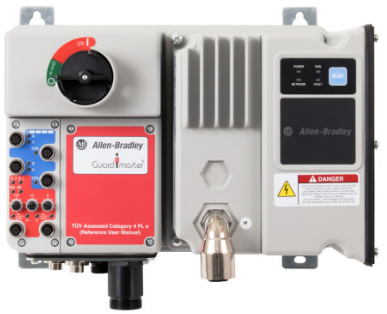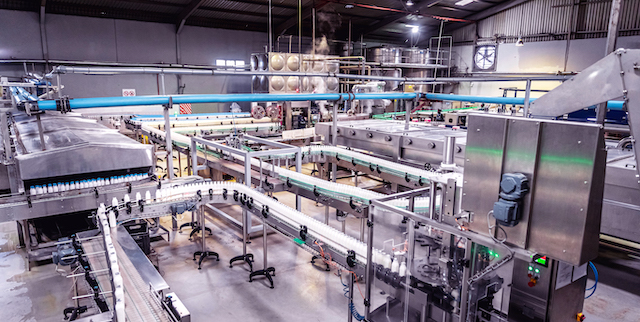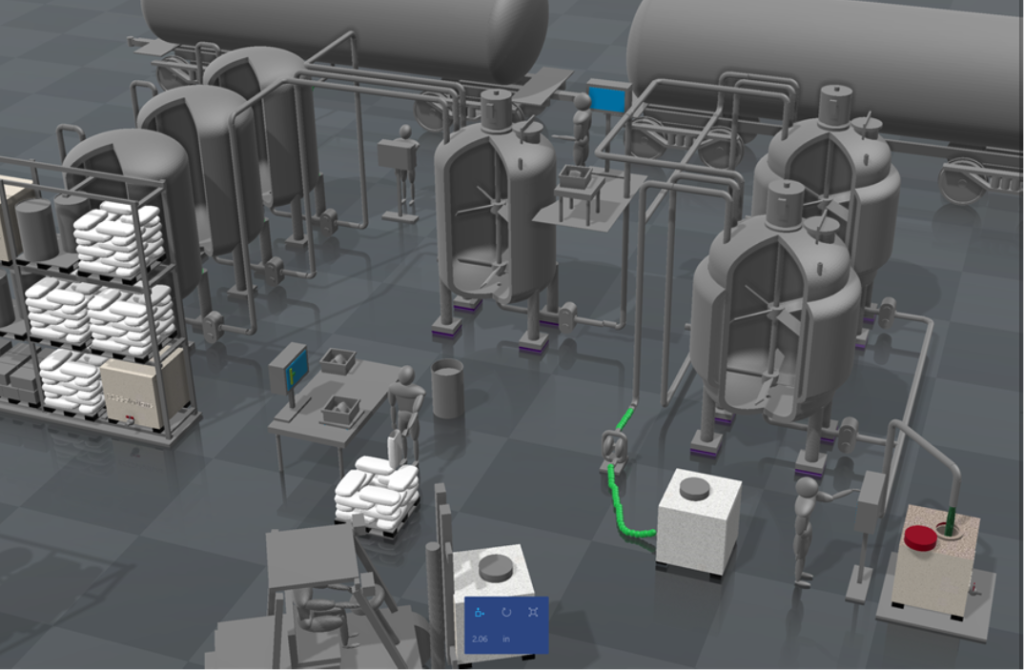News
ECS Eliminates Bottlenecks with Flexible Packaging Solution
Industrial systems are generally designed with a perfect balance between product manufacturing and packaging output. Changes to output requirements, product makeup, or packaging requirements frequently create imbalances known as process bottlenecks. The job of process and industrial engineers is to identify the slow points within the complete process and develop solutions to eliminate obstructions. Today’s solutions to a slow point in the middle of the line, for example, solve not only the current issue, but often highlight the next weakest link in the manufacturing chain and the process then repeats.
This situation is particularly prevalent in large-scale food manufacturing where systems designed to create one product are frequently adapted for future needs. Simple changes to ingredient makeup or quantities can upset the balance within processing systems or require the insertion of process steps that are outside of the equipment’s original intent. Perhaps just as frequent are changes in packaging that mandate the addition of new primary or secondary packaging machines to be used in conjunction with or instead of a line’s original machinery. All of these are good problems to have in that they indicate a flexible level of operation, and they create opportunities for manufacturers to support more customers with more products. (more…)
Read More | Posted In: Bakery Industry, Beverage Industry, Food Industry
Surviving the Great Resignation
A rapidly decreasing number of technical personnel are available who can install and maintain the higher-end equipment used in manufacturing today. “The great resignation and/or retirement” movement, along with changes associated with the recent pandemic landscape, has sent many highly qualified workers to the exits in search of new and often altogether different opportunities. The stage has been set for decades with the wave of baby boomer retirements churning towards manufacturers. Parallel to this has been the increased reliance on high-tech manufacturing machines and processes. These two situations pair well with the idea of future-proofing low-to-mid complexity manufacturing but, in an interesting juxtaposition, amplify the core problem. (more…)
Read More | Posted In: Bakery Industry, Beverage Industry, Blogs, Chemical Industry, Food Industry, Life Science Industry, Metals Industry

Batch Forensics: Class-based Unit Coordination Utilizing Link Groups
Take advantage of product functionality to coordinate activities between units.
Read More | Posted In: Bakery Industry, Beverage Industry, Blogs, Food Industry

Case Study: Process Lines to WIP Bins
The plant of a large, packaged food manufacturer contains multiple processing lines and a series of transfer lines to move the finished products into storage bins. Presently there are six process lines in operation but only four transfer lines, which limits the transfer from processing to storage. For example, if all four processing lines are running different products, it is impossible with the existing shared-transfer arrangement to simultaneously transfer all the products to the storage bins. The addition of two new transfer lines would establish one transfer line per process line, increasing flexibility in routing and ultimately increasing production capacity.
ECS undertook the project to install two new transfer lines, this project being carried out in three phases. Phase 1 added a transfer line dedicated to Process Line 5, Phase 2 added a transfer line dedicated to Process Line 6, and Phase 3 removed the shared functionality of the existing Process Lines and Transfer Lines 1-5. The installation of the new transfer lines included adding new conveyors, elevators, sifters, weigh scales, and slide gates for routing.
Read More | Posted In: Case Studies, Food Industry

Case Study: Taking the Bottleneck out of the Packaging Line
With continually increasing demand, a large, packaged food manufacturer sought to increase the capacity on their 15 packaging lines. Already producing 24/7, the packaging lines were restricted at the back end with palletizing and stretch wrapping. The existing configuration in the plant had four stretch wrappers and four palletizers being shared by the packaging lines and the company wanted a dedicated stretch wrapper and palletizer for each packaging line. Material handling conveyors would be installed to move the product from the packaging lines, through the palletizers and stretch wrappers, and to common offloading areas.
ECS was requested to provide controls on the entire system as well as establishing communications with the stretch wrappers and the palletizers. The bulk of the work was the transfer of the pallets either down the line or into the line and onto two different areas where they could be picked up by fork trucks. The project was implemented in phases to limit any interference with production. The entire project required 73 conveyor sections, as well as turntables, driven by an Allen-Bradley ArmorStart VFD (variable frequency drive). In total there were 84 ArmorStart VFDs.
Read More | Posted In: Food Industry, Inductive Automation

Case Study: Ignition at Large Food Manufacturer
A large food manufacturer requested assistance from ECS Solutions in replacing a SCADA/HMI system that was unreliable and difficult to maintain. After consultation with us, they selected the Ignition platform from Inductive Automation. Ignition provides a reliable platform that can be supported and developed internally or by system integrators. Ignition would provide the power to reliably replace the existing system and the flexibility to extend the application to other functional areas of the plant, allowing visibility across the plant from a single system. Additionally, Ignition allowed one common platform to be used to control the processing and the packaging areas of the plant.
Read More | Posted In: Case Studies, Food Industry

Case Study: Proprietary Replacement
For many years, a large nutrition company used a Proprietary program that was developed in-house, to manage the recipe database and to calculate the mass balances of the ingredients to meet the nutritional profile of each product. The application/program has become difficult to support and maintain. The customer approached ECS Solutions to undertake a review of the Proprietary application and recommend how it may be replaced or rewritten.
ECS engineers quickly recognized that Proprietary was a custom application, written in Microsoft access with a significant amount of custom VBA code incorporated into FactoryTalkView. The problem became how to obtain the functionality of the Proprietary application in something that was more manageable, accessible for troubleshooting, and ideally “off-the-shelf”. ECS engineers recommended that since the client was running FactoryTalkBatch in their operations, simply adding the Material Manager feature, which is a free add-on with FactoryTalkBatch, the required functions would be obtained. The customer’s management felt that ECS had to dig in and truly understand the very complicated Proprietary application and how critical it was to their operations.
Read More | Posted In: Case Studies, FactoryTalk Batch, Food Industry

Case Study: Upgrades for a Large Taste & Nutrition Company
A large taste and nutrition company that produces flavored breadcrumbs requested assistance from ECS Solutions to install and upgrade a mixer associated with their breadcrumb line 1. The company had purchased the same type of mixer that is presently used in production but wanted the controls to operate in the same way as those in the existing mixer. Assistance was also requested to reconfigure two lines; the aforementioned breadcrumb line 1 & an additional bread crumb line.
The company had purchased a new mixer from Peerless Food Equipment and required assistance with its’ installation into the breadcrumb 1 line and modification to the controls. The mixer was the same type as that being operated in the line, but the company wanted the controls to operate in the same way as those for the existing mixer 2. The new mixer was equipped with an HMI which ECS decommissioned and then programmed the existing mixer 2 HMI to operate both mixers. The operator interface terminal was also programmed to switch between the two mixers. The large taste and nutrition company had determined that these changes could significantly reduce the downtime being experienced by the line.
Read More | Posted In: Case Studies, Food Industry

Batch Forensics: The Case for Procedural Unit Tags
A Unit Tag is a class-based tag that identifies a characteristic of a unit.
The values of these tags are usually associated with information captured via the control systems analog and digital Input cards, signals like Temperature, Weight, Pressure, Level, Conductivity, pH, Level Switch, etc. Other unit tags can contain the status, state, material of construction, or any other user-defined attribute that can enhance the recipe editing capability and execution.
Read More | Posted In: Bakery Industry, Beverage Industry, Distilleries, Food Industry

Case Study: Repurposing a Tank Farm
A large US food manufacturing company planned to repurpose a tank farm, originally used in the manufacture of ice cream. The repurposing of the tank farm could be considered a greenfield installation, providing various oils to a new fryer system. The new designs would allow the storage and transfer of (1) newly delivered oil, (2) flavored oil to be reused and (3) waste oil to be discarded.
ECS Solutions was hired to help evaluate the existing system which was controlled by five Allen-Bradley SLC 5/03 PLCs. The ECS engineers determined the IO was sufficient for the planned changes as well as many of the existing valves. ECS redesigned the controls incorporating one new Allen Bradley CompactLogix controller to control the system and an Ethernet network to connect each of the existing SLC racks, which would be repurposed as remote IO racks. In addition, we provided new PowerFlex variable frequency drives to control the pumps that would move the oil from place to place. An existing Inductive Automation Ignition operator interface application was expanded to incorporate the oil storage system. In effect, the scope of the project was to evaluate the control systems available and to incorporate new controls where required.
Read More | Posted In: Case Studies, Food Industry, PLCs




